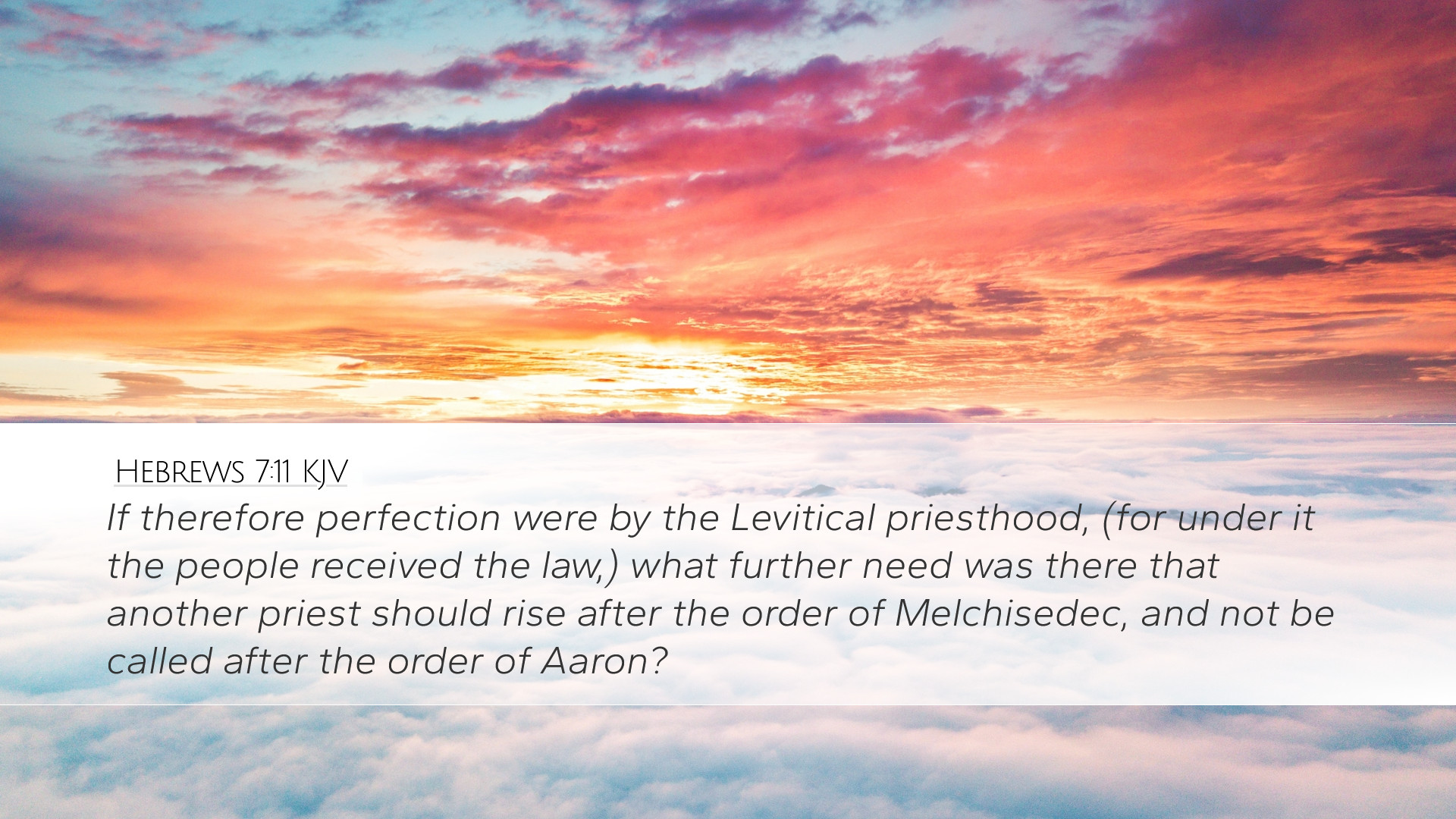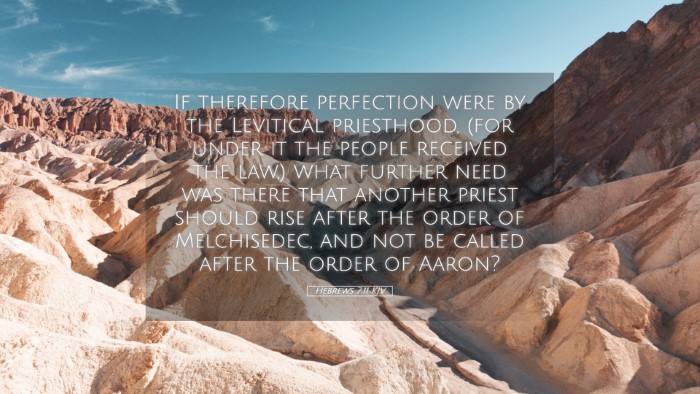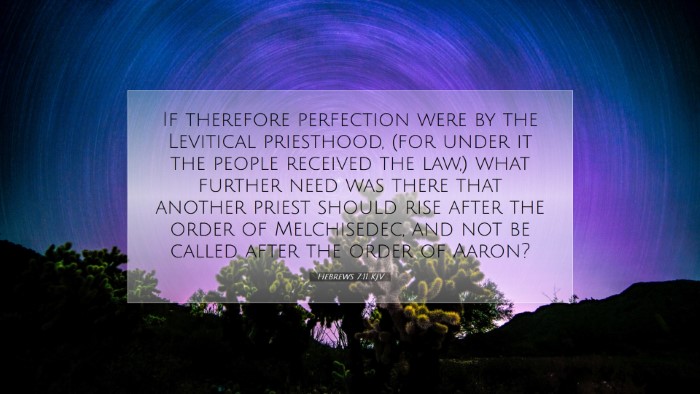Commentary on Hebrews 7:11
Verse: Hebrews 7:11 - "If therefore perfection were by the Levitical priesthood, (for under it the people received the law,) what further need was there that another priest should rise after the order of Melchisedec, and not be called after the order of Aaron?"
Introduction
This verse serves as a pivotal moment in the book of Hebrews, presenting a profound reflection on the function and limitations of the Levitical priesthood. The writer of Hebrews is engaging in a theological discourse that highlights the inadequacy of the Levitical priesthood in achieving spiritual perfection and sets the stage for the introduction of a superior priesthood, represented by Melchizedek.
The Context of Perfection
Matthew Henry emphasizes that the term "perfection" here refers to a state of moral and spiritual completeness. The Levitical priesthood, established under the Mosaic Law, was intended to provide a means of reconciliation between God and the Israelite people. However, Henry points out that this system was inherently deficient as it could not bring about true purification and fellowship with God.
Albert Barnes provides clarity on this notion, stating that despite the rigorous observance of the law and the priestly duties, there remained an ongoing sense of guilt and separation from God. The sacrifices offered were reminders of sin rather than a resolution to it (Hebrews 10:3).
The Need for a New Priesthood
The rhetorical question posed by the author—"what further need was there for another priest?"—serves as a critical juncture in the argument. Adam Clarke notes that the necessity for a priest after the order of Melchizedek indicates that the Levitical priesthood was inadequate for the eternal redemption of humanity.
Henry highlights that the priesthood of Aaron could only offer temporary atonement, whereas the priesthood of Melchizedek signifies a lasting, eternal priestly function. This is essential for a more permanent reconciliation between God and humanity.
Understanding Melchizedek
The introduction of Melchizedek into the discussion serves as a vital theological concept. Melchizedek is presented as a priest of God Most High and a king of righteousness, which underscores the unique dual role he plays (Genesis 14:18). Barnes explains that this character embodies the hope of a greater high priest, which is fulfilled in Jesus Christ.
Furthermore, Clarke elaborates on Melchizedek's characteristics as a type of Christ, suggesting that his priesthood points to a new covenant that supersedes the old covenant of the law. This new order is characterized by a direct and personal relationship with God, inviting all believers into a royal priesthood (1 Peter 2:9).
The Implications for Believers
The implications of Hebrews 7:11 extend far beyond its historical context, resonating with modern believers. The author’s argument serves as a source of hope that the inadequacy of the prior priesthood is replaced by the sufficiency of Christ’s sacrifice. Henry notes that believers can approach the throne of grace with confidence, as the eternal high priest mediates on their behalf (Hebrews 4:16).
Additionally, the verse invites pastors and theologians to create a deeper understanding of the doctrine of priesthood. The transition from the Levitical system to the Melchizedekian order signifies a shift from the law of Jealousy to grace, reinforcing the notion that our relationship with God is not based on adherence to law but on faith in Christ.
Conclusion
Hebrews 7:11 encapsulates a rich theological discussion that extends throughout the book of Hebrews, highlighting the transition from the Levitical priesthood to the superior order of Melchizedek. It emphasizes the inadequacies of the old covenant while proclaiming the fullness and perfection found in Christ's eternal priesthood. For pastors, students, and scholars, this verse serves as a profound reminder of the grace afforded to us through Christ, inviting deeper contemplation on our access to God and the nature of our salvation.


